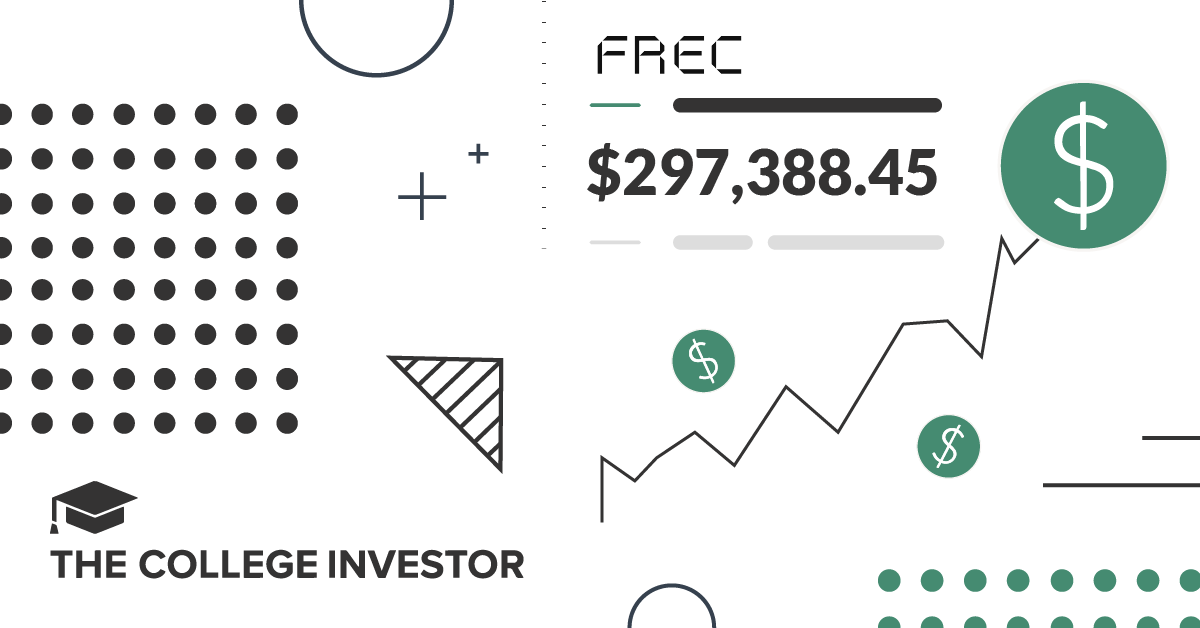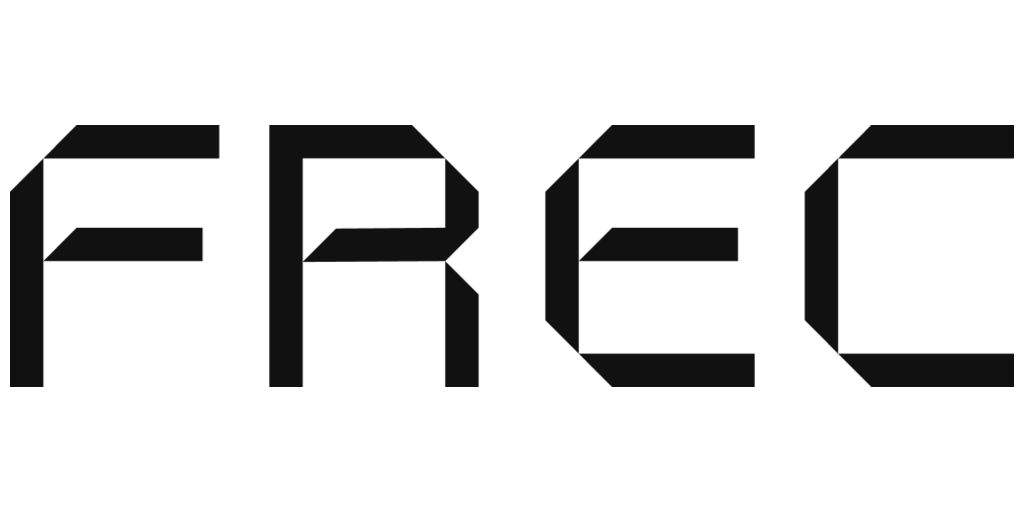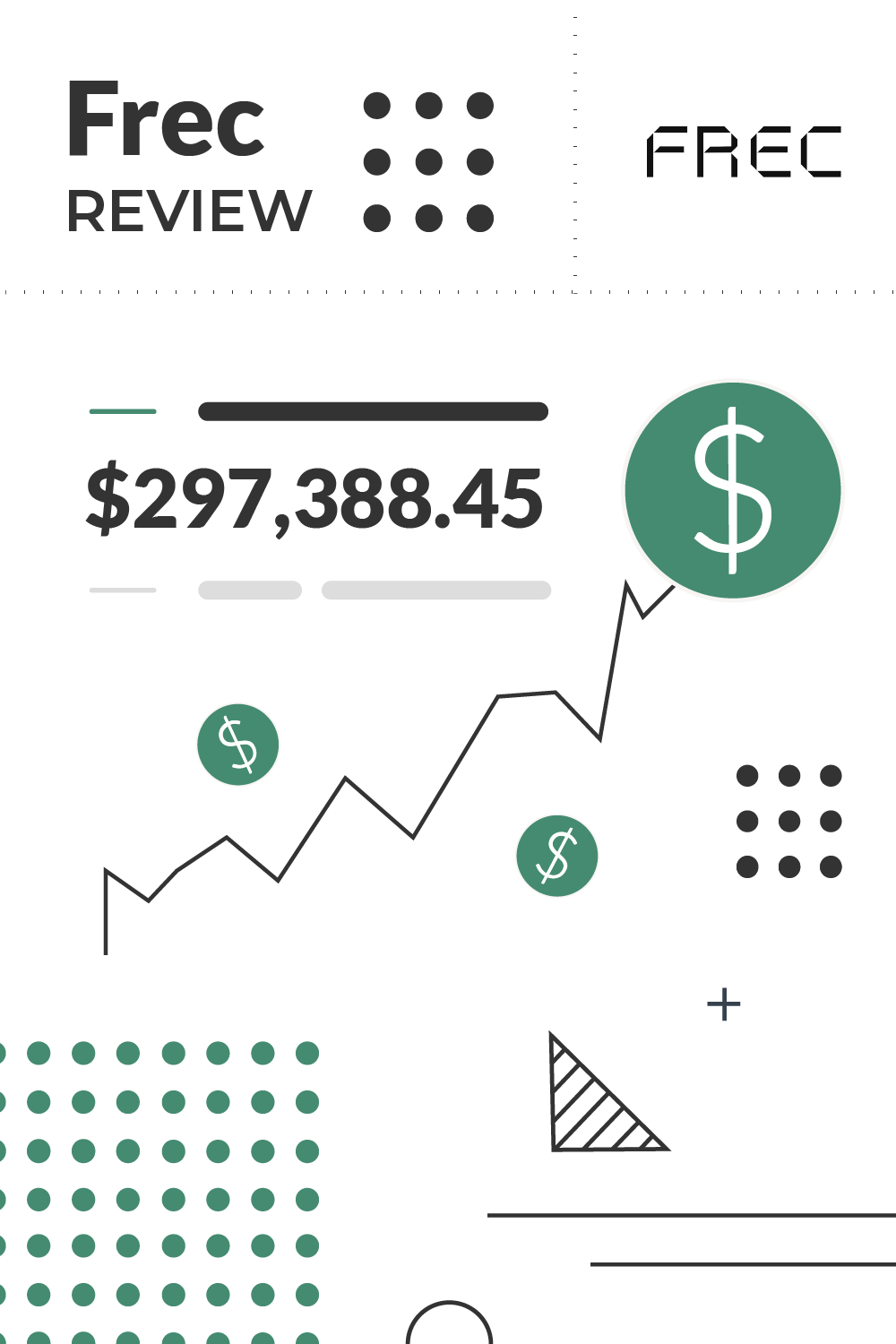
Frec is a fintech offering direct indexing portfolios with low fees. Direct indexing is an investment strategy that involves the frequent trading of individual stocks while maintaining the portfolio in line with a major index, such as the S&P 500.
Direct indexing is generally meant for high-net-worth investors looking to maximize tax loss harvesting benefits, but Frec makes it available to a larger audience at a relatively low management fee. We explore Frec direct indexing to help you determine if it could make sense for your portfolio.
Frec Details | |
|---|---|
Product Name | Frec Direct Indexing |
Minimum Investment | $20,000 |
Pricing | 0.10% |
Tax Loss Harvesting | Yes |
Promotions | None |
What Is Frec?
San Francisco based Frec was founded in 2021. After two years of development, it became available to the general public in October 2023. It’s a VC-backed startup focused on active direct indexing for accounts with at least $20,000 invested.
The company is a registered financial services provider with the SEC and FINRA and acts in a fiduciary capacity. Behind the scenes, accounts are held by Apex Clearing, a huge provider of backend investment accounts. Funds are SIPC insured.
What Does It Offer?
Here’s a closer look at what you can expect with a Frec account.
Direct Indexing Accounts
Frec offers direct indexing-enabled accounts. You can pick from a list of S&P indices, such as the S&P 500 and S&P 500 Technology Index. Once you choose your index, you can exclude specific stocks or add other stocks to create a more personalized version of the underlying fund.
Advanced Tax Loss Harvesting
Direct allows for more fine-tuned tax loss harvesting than traditional index ETFs or mutual funds. With tax loss harvesting, stocks are bought and sold more frequently to take advantage of the ups and downs of the market, locking in investment losses to offset future investment gains.
Because direct indexing involves owning dozens or hundreds of stocks, it was formerly available only to high-net-worth households able to build huge portfolios. Thanks to fractional share ownership and Frec's technology, you can invest with balances as low as $20,000.
According to Frec, "Daily tax loss harvesting can capture up to $19 in incremental tax savings for every $100 deposited and tack on an incremental 2% per year.”
Portfolio Line Of Credit
You can access a portfolio line of credit if you have cash in a portfolio and want to leverage the balance without selling. We can't recommend borrowing against portfolio assets, but it’s an option if you want it.
Are There Any Fees?
Unlike many other fintech startups, Frec is transparent about fees. It charges a yearly
0.10% fee based on assets under management (AUM). That’s less than most robo-advisors and many index fund ETFs charge. There are no additional fees to trade stocks or ETFs aside from the SEC-imposed fees you would pay with any brokerage.
You could pay additional fees for buying or selling mutual funds, but that goes against the general idea of index investing with Frec, so you’re unlikely to encounter them.
Other fees include a treasury management fee for cash balances, interest charges for the portfolio line of credit, and other less common charges.
How Does Frec Compare?
Frec’s competitors include robo-advisors, online brokerages, and other direct indexing investment platforms. Some top competitors include:
Large Brokerage Firms
Large investment companies like Fidelity and Charles Schwab offer direct indexing products. Large brokerage firms offer one-size-fits-all versions of direct indexing, with fully managed portfolios as the primary option.
Robo-Advisors
In many cases, robo-advising platforms are already optimized for tax loss harvesting, so adding a direct indexing product makes sense. Wealthfront is an example of a robo-advisor that offers direct indexing. It requires a portfolio of at least $100,000 for direct indexing, five times the minimum with Frec. Wealthfront charges 2.5 times more than Frec, with a 0.25% annual fee. Betterment is similar to Wealthfront, but while they offer tax loss harvesting, they do not offer direct indexing.
Header |  | ||
|---|---|---|---|
Rating | |||
Pricing | 0.10% | 0.25% | $4 monthly or 0.25% yearly |
Direct Indexing | Yes | Yes | No |
Mininum (for Direct indexing) | $20,000 | $100,000 | N/A |
Tax Loss Harvesting | Yes | Yes | Yes |
Cell |
How Do I Open An Account?
It's easy to get started with Frec. Simply head to the Frec website and click the button at the top to begin the account opening process.
You can create an account with your email and a password or by linking to a Google or Apple account. After entering your login details, you can choose three account types: Individual, trust, or business.
You’ll need to add your personal information, such as your address and a verified phone number, to continue with the setup process.
After that, you’ll link your bank account or set up another funding method to cover the $20,000 minimum and choose your initial index portfolio.
It takes about two minutes to set up an account if you’re computer savvy.
Is It Safe And Secure?
Frec portfolios come with the same risks as other indexed invested portfolios. As a company, Frec is safe to deal with. Apex Clearing holds Frec accounts, and Frec is a licensed and registered investment company with both the SEC and FINRA.
Investment accounts are SIPC insured, so you’ll get your assets back even if Frec or Apex Clearing go out of business. I’ve invested with a company that shut down and used Apex Clearing, and it was easy enough to get my money out and tax statements even after the investment company closed.
How Do I Contact Frec?
Like many fintech companies we look at, support options are limited.
Customer Service
Frec lists a single customer service email address on its public website: help@frec.com. The website also has a self-help section with answers to common questions.
Frec shows no complaints on the FINRA website, indicating that most users have either had positive experiences and any customer service issues were resolved without regulatory intervention.
Why Should You Trust Me?
I’ve been writing about personal finance online since 2008 and have two finance degrees, including an MBA. I spent much of my graduate education focused on investing and portfolio management, so understanding how companies like Frec work is right up my alley.
The College Investor team works hard to create unbiased reviews to help you make informed decisions when choosing brokerage accounts and other products. I spent several hours testing Frec features and scouring news and reviews to ensure this review is accurate and truthful.
Is It Worth It?
Frec is for investors looking for more tax loss harvesting benefits than you would get with an index fund or traditional investment account. If you already have your retirement portfolio on track and want better tax features for the taxable portion of your investments, Frec could be a good fit.
Frec Features
Account Types | Direct Indexing |
Minimum Investment | $20,000 |
Fees | 0.10% AUM |
Fractional Shares | Yes |
Retirement Accounts | No |
Tax Loss Harvesting | Yes |
Portfolio Line of Credit | Yes; Up to 70% of portfolio value |
Borrowing Rate | 6.33% (March 2024) |
Customer Service Email | help@frec.com |
Customer Service Number | N/A |
Mobile App Availability | No |
Web/Desktop Account Access | Yes |
Promotions | None |
Frec Review: Direct Index Investing
-
Products and Services
-
Charges and Fees
-
Tools and Resources
-
Customer Service
Overall
Summary
Frec is a fintech that allows investors to take advantage of tax loss harvesting through direct indexing. It features a low 0.10% fee and portfolio minimums of only $20,000.
Pros
- Direct indexing with less than six figures
- Low 0.10% management fee
- Customize your portfolio beyond the underlying index
Cons
- No retirement portfolios
- More complex than a single ETF
- Minimum $20,000 account value to get started

Eric Rosenberg is a financial writer, speaker, and consultant based in Ventura, California. He holds an undergraduate finance degree from the University of Colorado and an MBA in finance from the University of Denver. After working as a bank manager and then nearly a decade in corporate finance and accounting, Eric left the corporate world for full-time online self-employment.
His work has been featured in online publications including Business Insider, Nerdwallet, Investopedia, The Balance, Huffington Post, and other financial publications. When away from the computer, he enjoys spending time with his wife and three children, traveling the world, and tinkering with technology. Connect with him and learn more at EricRosenberg.com.
Editor: Colin Graves Reviewed by: Robert Farrington
